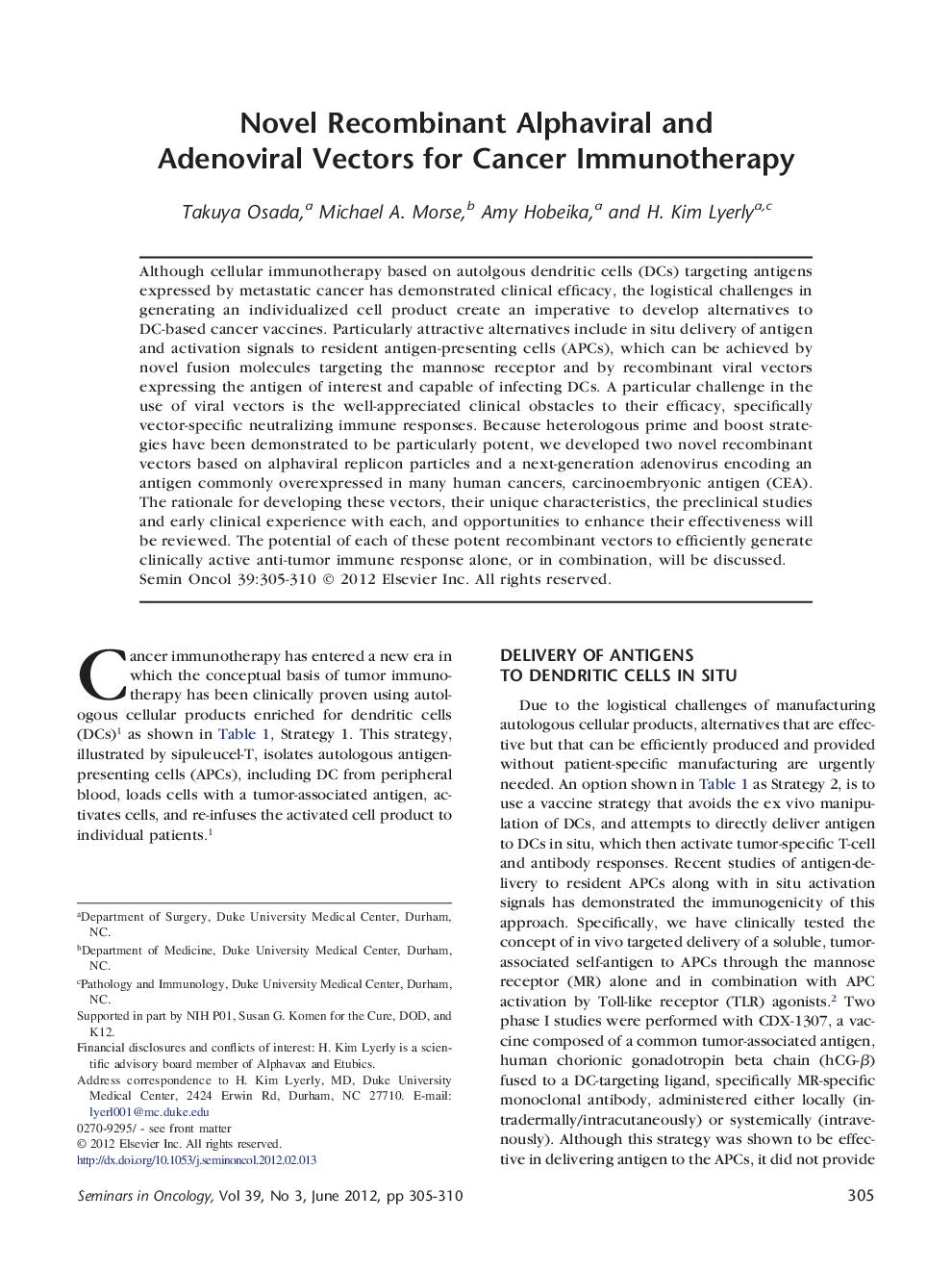| Article ID | Journal | Published Year | Pages | File Type |
|---|---|---|---|---|
| 2162217 | Seminars in Oncology | 2012 | 6 Pages |
Abstract
Although cellular immunotherapy based on autolgous dendritic cells (DCs) targeting antigens expressed by metastatic cancer has demonstrated clinical efficacy, the logistical challenges in generating an individualized cell product create an imperative to develop alternatives to DC-based cancer vaccines. Particularly attractive alternatives include in situ delivery of antigen and activation signals to resident antigen-presenting cells (APCs), which can be achieved by novel fusion molecules targeting the mannose receptor and by recombinant viral vectors expressing the antigen of interest and capable of infecting DCs. A particular challenge in the use of viral vectors is the well-appreciated clinical obstacles to their efficacy, specifically vector-specific neutralizing immune responses. Because heterologous prime and boost strategies have been demonstrated to be particularly potent, we developed two novel recombinant vectors based on alphaviral replicon particles and a next-generation adenovirus encoding an antigen commonly overexpressed in many human cancers, carcinoembryonic antigen (CEA). The rationale for developing these vectors, their unique characteristics, the preclinical studies and early clinical experience with each, and opportunities to enhance their effectiveness will be reviewed. The potential of each of these potent recombinant vectors to efficiently generate clinically active anti-tumor immune response alone, or in combination, will be discussed.
Related Topics
Life Sciences
Biochemistry, Genetics and Molecular Biology
Cancer Research
Authors
Takuya Osada, Michael A. Morse, Amy Hobeika, H. Kim Lyerly,
